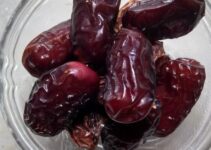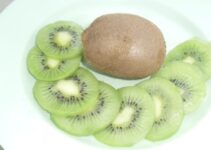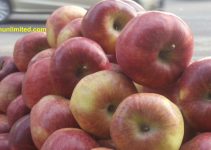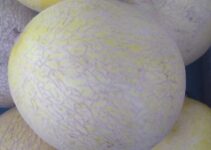As the winter starts in Asian countries, Singhara or water chestnut are flooded on the roadsides. Water chestnut is known for its crispy and crunchy features and mouth-watering. It is accessible to all because of its lower price. However, on the other side, it is loaded with many nutrients, antioxidants and minerals. Many essential health benefits, such as weight loss, heart health, constipation, etc., can be solved by eating these surprising vegetables. I also like to bring it for my family and relish its crunchy and crispy recipes. Also Read: Benefits of Rambutan for Weight Loss.

What is a water chestnut?
Water chestnut is an aquatic vegetable native to the Asian continent and generally grown in a muddy or marshy land area. It has a tube shape, and its stems are without leaves. The edible part of the vegetable is the corms, which are whitish. Often, they are eaten raw. They are also used after slightly boiled. They are used to make flour and cake (water chestnut cake). Singhara is rich in carbohydrates, fibre, vitamins, and minerals. They are crispy and crunchy.
Different names
Various names in different countries know water chestnut.
- Chinese water chestnut (China)
- Apulid (Philippines and Vietnam)
- Somwang (Thailand)
- Singhad, shingada, or singoda (India)
- Eleocharis dulcis-Biological name
- The other names of water chestnuts are water caltrop and Trapa natans.
5 uses of water chestnut
- Water chestnuts are used along with coriander, rice, noodles, ginger, sesame oil, bamboo shoots, etc., with a crunchy and crispy taste.
- it is an essential component of Thailand’s famous Thai dessert ‘tabtim krob’.
- In developed countries, it is used along with bacon strips as a hors d’oeuvre.
- It is mixed with drinks in Indonesia.
- They are used in many forms: powder, juice, cake, flour, sliced, eaten raw, and steamed.
15 surprising benefits of water chestnuts
- Rich in potassium: It has enough potassium, which helps to counter the effect of sodium and is good for lowering blood pressure and your heart. Five raw water chestnuts have 5% of the daily recommended potassium intake.
- Alleviate nausea: the drinking of water chestnut juice helps ease out of sickness. Singhara juice is good for jaundice.
- Lowers cardiac risks: It helps to lower the level of cholesterol and discourages the absorption of carbohydrates. One hundred grams of it contains 2 g of fibre. Fruits for cardiac health
- Good for sound sleep: The presence of Vitamin B-6 is good for sleeping as well as alleviating your mood. It produces neurotransmitters that are effective for your mood and sleep. Also Read: Sleeping Disorders.
- Good for measles: Boiled water of water chestnuts is good for measles patients.
- Good for the thyroid gland: Due to the presence of iodine, it is effective in adequately functioning the thyroid gland. Yoga for thyroid.
- Hair growth: Eating water chestnut is good for hair because of the presence of potassium. It also has vitamins B and E. All these nutrients are good for healthy hair.
- Control loose motions: It has cooling effects and acts like a coolant.
- Anti-viral: The presence of antioxidants like polyphenols and flavonoids acts as anti-viral, anti-bacterial, anti-cancer, and anti-fungal.
- Good for fetal growth: During pregnancy, it is helpful in the growth and development of the fetus.
- Good for skin: It helps to detoxify the body and gives an overall pleasing appearance. The paste of water chestnuts and lemon juice is good to cure eczema.
- Regulates water retention: It has balancing effects in the body due to enough potassium and a lower amount of sodium, thus helping regulate water retention.
- Cure phlegm: Those suffering from phlegm issues should take regularly in the winter season.
- Secretion of mother milk: It is good for milk secretion by stimulating the mammary gland.
- Sore throat: Eating vegetables helps cure a sore throat.
Nutritional facts
The nutritional value of Singhara is as follows:
- It contains many bio-chemical compounds such as catechins and epicatechins antioxidants.
- It has a penicillin-like compound called punchin.
- Besides this, it contains gallic, vanillin, hydrocinnamic, and coumaric acids.
- It has adequate potassium and low sodium, thus suitable for your blood pressure and heart.
- Obese people should avoid eating it because it’s more carbs-containing.
- 100 grams of it has a nutritional value of calories (97), fat (0.1g), potassium (584mg), sodium (14mg), carbohydrate (24g), protein (1.4g), fibre (2g), protein (1g), calcium (1%), vitamin C (6%), vitamin B-6 (15%) and magnesium (5%).
Recipes
The following recipes can be made from this important vegetable.
- Bacon-wrapped water chestnuts
- Snow peas with water chestnuts
- Bacon water chestnut appetiser
- It can be used to prepare recipes like Egg rolls, Moo Goo Gai Pan, vegetarian potstickers, vegetarian cabbage rolls, ultimate chicken stir-fry, and stuffed green peppers.
- Cashew shrimp with water chestnuts
Availability period
Water chestnuts are available throughout the year. But in the tropical climate, especially in the Asian region, it is abundant in the winter season. It is grown in California and Florida in the United States of America (USA). You must use packed or in products to have Singhara around the year.
Selection process
The selection of singhara is a tedious job. Selecting or getting the smooth skin of this vegetable is a challenging task. Only some pieces are even in shape. A maximum of them are wrinkled. So, one should take more quantity while purchasing it because many get rotten or decay.
How to store
Uncooked or raw Singhara without unpeeling can be kept for 4 to 5 days. Extra precautions must be taken in the storage process for the peeled water chestnuts. It can be put in the refrigerator for two weeks, dipping into the water. Water should be changed daily to maintain its taste. However, canned water chestnuts can be kept for one year. Once it is opened, it should be consumed at the earliest. Eating the fresh form of it is advisable to get the maximum benefits of the vegetable. The new record is more tasty, crispy, and crunchy.





very good and educative information
Very informative article. Health benefits of water chestnuts are a lesser known fact and hence people should be made aware of this and blogs like this surely helps in achieving such goals.